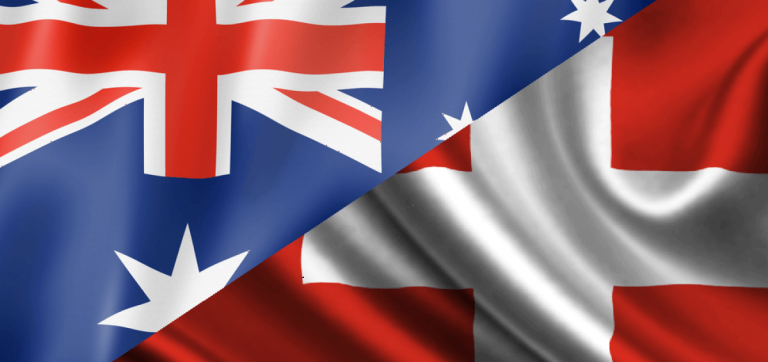Australia & Switzerland Tax Treaty

Australia and Switzerland have signed a new tax treaty, replacing the 1980 agreement between the two countries.
The OECD Action on Base Erosion and Profit Shifting has been a key consideration in the revision, with bilateral tax arrangements now more closely aligned to current Australian and international tax treaty policy settings.
The new treaty contains provisions for the exchange of information and data, bringing it into alignment with OECD efforts to strengthen tax integrity on a global basis. The main focus of the revisions is around income tax, fringe benefits tax, the petroleum resource rent tax and the mineral resource rent tax.
It also strengthens the ability of both countries to allow for the exchange of information held by banks and other financial institutions.
Greater data transparency
The revised treaty is intended to provide a legal basis for the exchange of taxpayer information between Australian and Swiss revenue services, including the detection and prevention of tax avoidance and evasion.
Bank secrecy is prevalent in Switzerland. According to the ATO, approximately $41 billion has been moved between Australia and Switzerland in the past financial year.
While the treaty doesn’t automatically exchange information, the ATO will seek details of bank accounts through an exchange of information clause introduced into the treaty – a significant change from the 1980 treaty.
So what are the important items in the revised treaty?
Temporary residents
The key consideration is how income is treated if it is derived in Australia or if it is exempted in Australia. For example, Switzerland will not be required to provide treaty benefits for income derived by Australian temporary residents if Australia exempts that income.
Pensions
Similarly, pensions and similar payments will be taxable in the recipient’s country of residence, provided the recipient is taxable on those payments in that country. If not, the source (of the pension or similar payment) country may also tax the payments. Lump sum payments in respect of retirement, invalidity, disability, death or injury may be taxed in the country of source of the payment.
Permanent establishment
A revised definition of ‘permanent establishment’ will broaden the range of circumstances in which both countries can tax at source business profits derived from construction and mining activities, and the operation of substantial equipment.
In addition, integrity provisions will help prevent related parties from circumventing the permanent establishment time thresholds by splitting contracts.
Income from immovable property
A revised definition of ‘immovable property’ will enhance both countries’ ability to tax income derived from the use of immovable property, including mining rights.
Business profits
Taxing rights over business profits derived through a permanent establishment will apply to profits derived through interposed trusts.
Associated enterprises
Where the revenue authority of one country adjusts the taxable income of a resident of the other country, to reflect its assessment of the arm’s-length price of goods or services provided to an associated enterprise, the revenue authority of the other country will be required to make a correlative adjustment.
Dividends
Dividends may be taxed in the source (of dividend) country as follows:
- 0% – for dividends paid to publicly listed and unlisted companies (in certain circumstances) that hold 80% or more of the paying company
- 0% – For dividends paid to complying Australian super funds and tax exempt Swiss pension schemes
- 5% – For dividends paid to companies that hold 10% or more of the paying company
- 15% – For all other cases.
Interest
Interest may be taxed in the source (of the interest) country as follows:
- 0% – Interest paid to bodies exercising government functions and to banks performing central banking functions.
- 0% – For interest paid to banks that are unrelated to and dealing independently with the payer.
- 0% – For complying Australian super funds and tax-exempt Swiss pension schemes.
- 10% – In all other countries
Royalties
Royalties may be taxed in the source (of the royalty) country at up to 5 per cent. A revised definition of ‘royalties’, to exclude the right to use industrial, commercial or scientific equipment from the definition, will lower costs for firms that lease such equipment.
Alienation of property
Gains from the disposal of shares or comparable interests in land-rich entities will be taxable in the country where the land is situated.
Australia may tax certain gains derived by individuals who were Australian residents during the relevant income year or during any of the preceding four years.
Fringe benefits tax
Taxing rights over fringe benefits provided to employees will be allocated to the country that has the primary taxing right over the underlying employment income. This will prevent the double taxation of fringe benefits.
General Treaty Provisions
Non-discrimination
Non-discrimination rules will prevent Australia and Switzerland from treating each other’s nationals any less favourably – for tax purposes – than they would treat their own nationals in similar circumstances.
Mutual agreement procedure
Taxpayers will have three years in which to seek the revenue authorities’ assistance in the resolution of tax disputes arising from the application of the treaty.
Taxpayers will also be able to refer tax disputes that remain unresolved after three years to independent arbitration.
Anti-abuse rules
The revised treaty will include rules denying treaty benefits, in certain circumstances, if a person’s principle purpose is to take advantage of the treaty.
International tax advice
If you’re an Australian or Swiss national, obtaining advice about your tax obligations is recommended before moving to or from Australia. Please contact Matt Zhou on +61 (0)2 9957 4033 for a confidential discussion.
Last updated March 2014. This factsheet is provided for information purposes only and is correct at the time of publishing. It should not be used in place of advice from your accountant. Please contact us on 02 9957 4033 to discuss your specific circumstances.